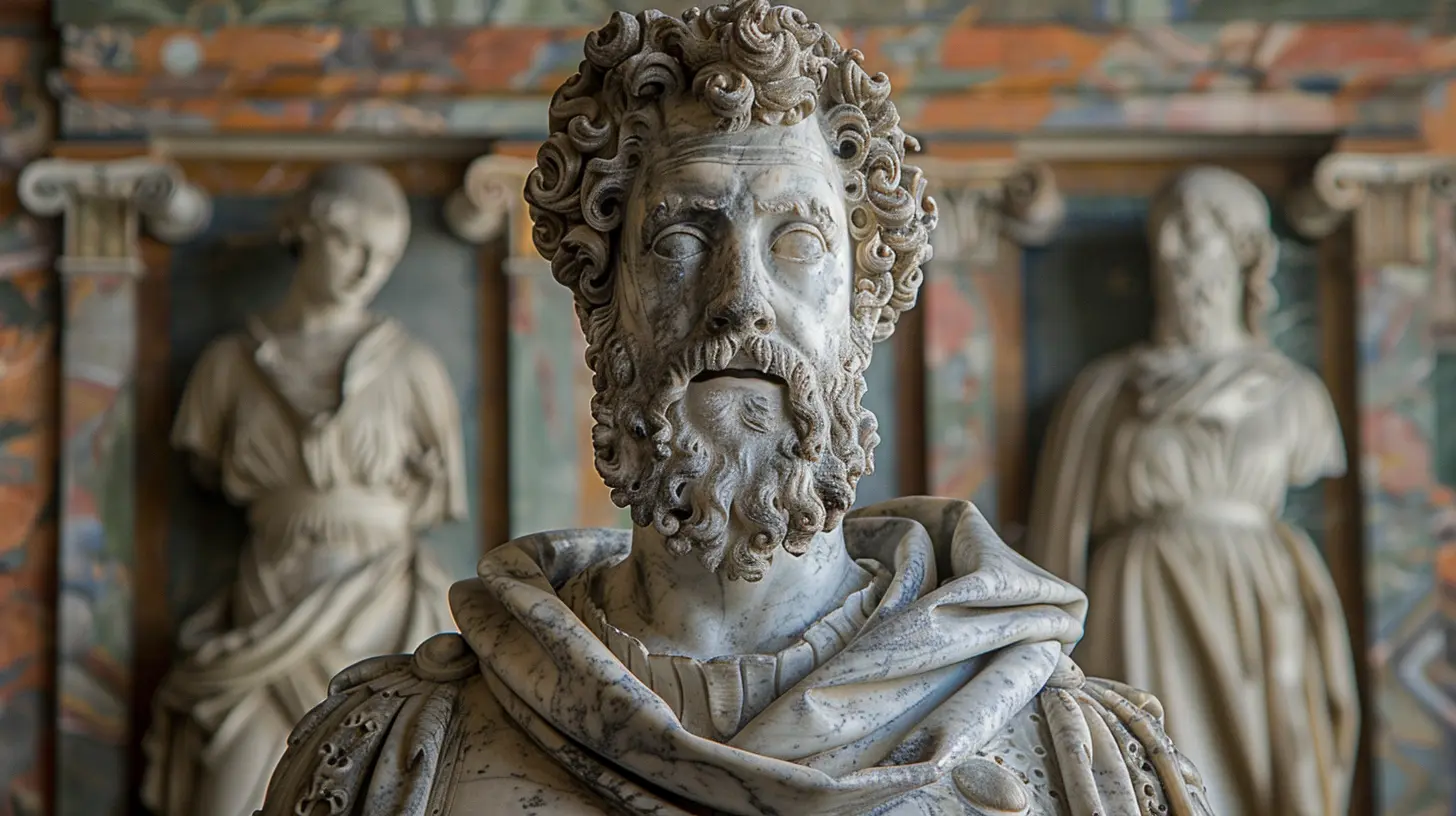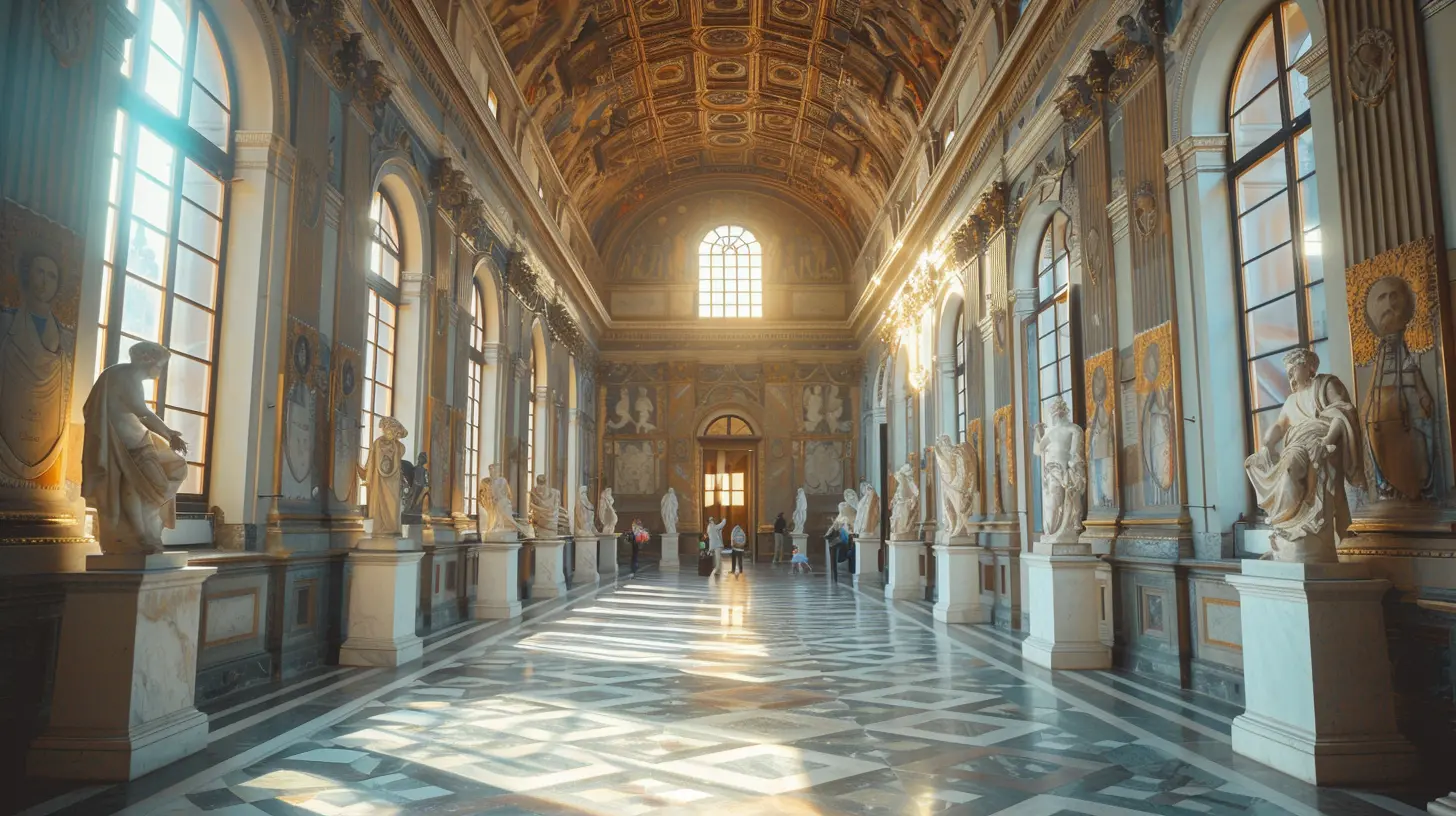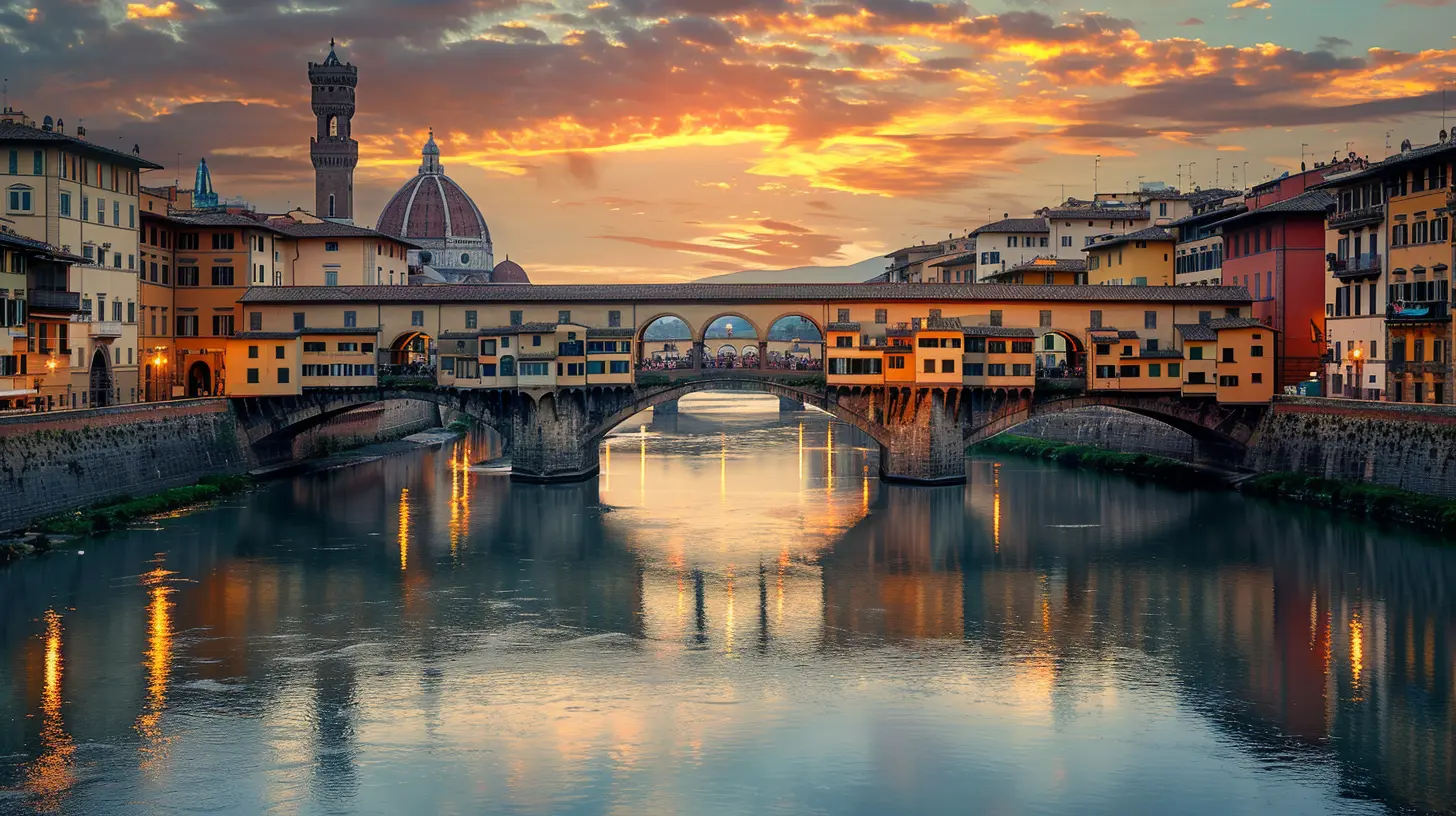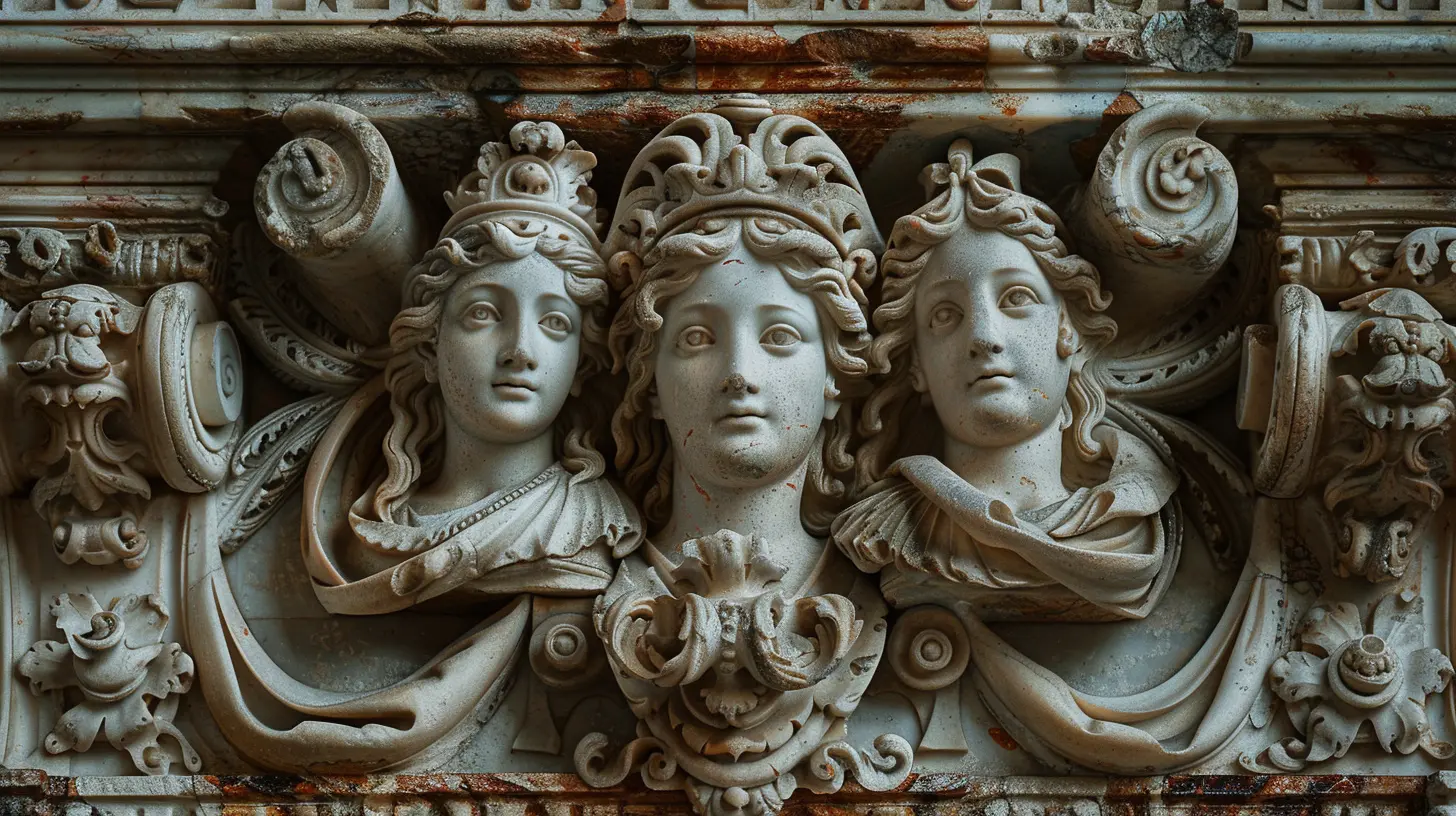A Cultural Journey Through the Art and History of Florence
31 December 2024
When we talk about Florence, we're not just discussing a city in Italy; we're delving into the heart of the Renaissance itself. It's a place where the past whispers through the cobblestone streets, and art is as deeply embedded in the city's DNA as its famed architecture. Whether it’s the majestic Duomo or the masterpieces housed in the Uffizi Gallery, Florence is like a living museum. It's a dream destination for history enthusiasts and art lovers alike.
In this journey, we'll walk through the vibrant art, architecture, and historical significance of Florence. Let’s explore why this city is hailed by many as the birthplace of the Renaissance and how its treasures continue to inspire millions.

A Glimpse Into Florence's Glorious Past
Before we dive into the art and culture, it’s important to understand Florence's historical significance. Florence, or Firenze in Italian, became the center of Europe's culture and intellect during the 14th and 15th centuries. The city was at the forefront of the Renaissance, a period that sparked significant advancements in science, politics, art, literature, and philosophy.But Florence wasn’t always a beacon of creativity. In the early Middle Ages, it was just another small city in Tuscany. What changed? The rise of wealthy banking families, particularly the influential Medici family, who became patrons of great artists and thinkers. They planted the seeds of Florence's cultural blooming, funding the arts and encouraging a flourishing of ideas.
Florence's history is woven into the very fabric of Western civilization, and as you explore its streets today, you are, in every sense, walking through history.

The Artistic Explosion: The Renaissance Begins
Florence is synonymous with the Renaissance because this is where it all began. Picture this: It’s the 14th century, and Europe is just beginning to pull itself out of the so-called Dark Ages. Out of this gloom comes a new way of thinking, one that values humanism, individual expression, and accomplishments. Nowhere was this change more evident than in the art world.Florence became the creative hub where artists like Leonardo da Vinci, Michelangelo, and Botticelli would redefine art forever. Instead of focusing solely on religious themes, as had been the case for centuries, Renaissance artists began to celebrate the human body, nature, and emotion. They used techniques like perspective to bring their paintings to life.
Leonardo da Vinci: A True Renaissance Man
Let’s pause for a moment and talk about one of Florence's most famous sons – Leonardo da Vinci. While he was born outside of the city, Florence was where he honed his craft and built his reputation as a painter, sculptor, and thinker. Here he created some of his most famous works, including initial sketches of The Last Supper and Mona Lisa.Even though many of Da Vinci’s works are now spread across the world, his spirit is very much a part of Florence. When you visit, you can see some of his earliest works in the Uffizi Gallery, a place that feels like a portal to the Renaissance.
Michelangelo: Sculpting the Soul
And speaking of artistic giants, can we talk about Michelangelo? His famous sculpture David isn’t just another artwork; it's a symbol of human perfection, beauty, and Florence itself. Originally intended for the Florence Cathedral, it now stands proudly in the Galleria dell'Accademia. The precision and detail in this work are astounding. When you stand before it, you understand how a piece of marble can be transformed into something that feels alive.Beyond David, Michelangelo also contributed to the magnificent frescoes in the Sistine Chapel, though much of his formative years and artistic achievements took root in Florence. He's a figure whose genius still echoes through the city.
Botticelli: The Poetry of Paint
Then there’s Botticelli, whose iconic painting The Birth of Venus is housed in the Uffizi Gallery. This artwork encapsulates the ethereal beauty associated with Renaissance art. Unlike earlier medieval works that were rigid and solemn, Botticelli’s paintings are light, flowing, and almost dream-like. His use of classical mythology in The Birth of Venus and Primavera brought humanism to the forefront of Italian art.
Architectural Splendors
It’s impossible to talk about Florence without mentioning its architectural masterpieces. You can’t walk a single street in Florence without bumping into a centuries-old church, a grand palazzo, or a beautifully sculpted piazza. The architecture here doesn’t just house art; it is art!The Iconic Duomo: Florence’s Crown Jewel
The City of Florence is dominated by one building: The Florence Cathedral, often simply called the Duomo. The city skyline would be unimaginable without it. Filippo Brunelleschi's dome is an architectural wonder, and—fun fact—it remains the largest masonry dome in the world! The most amazing part? It was constructed centuries ago, in the 15th century, without modern technology. Just think about that for a second.Stepping inside the Duomo, you'll be greeted by Giorgio Vasari's massive fresco of The Last Judgment, which decorates the interior of the dome. The sheer grandeur of the structure is overwhelming, making it one of Florence’s most visited sites.
The Uffizi Gallery: A Treasure Trove of Art
If Florence is the beating heart of the Renaissance, then the Uffizi Gallery is its soul. Housing works by Michelangelo, Leonardo da Vinci, Botticelli, and Raphael, the Uffizi is where you'll immerse yourself in the art that defined an era.Walking through the corridors and rooms, you’ll see masterpieces that shaped Western art. From Michelangelo’s Doni Tondo to Botticelli’s The Birth of Venus, each corner offers a visual feast for art lovers. It’s impossible to take it all in during one visit (or two, or three), but every step is worth it.
Piazza della Signoria and Palazzo Vecchio
When you walk into Piazza della Signoria, you feel as though you’re stepping onto the stage of history. This square is more than just a lovely place to take pictures—it’s where important political and social events unfolded.At the heart of the piazza stands Palazzo Vecchio, Florence's city hall, a towering medieval fortress-like building that once housed the government. Decorating the square are various sculptures, including a replica of Michelangelo’s David and Perseus with the Head of Medusa by Cellini. The piazza is a living testament to Florence’s Renaissance past, where political power and artistic innovation met.

Florence’s Deeper Layers: Exploring Hidden Treasures
While Florence's major attractions like the Duomo or the Uffizi Gallery steal the spotlight, the city has many hidden gems waiting to be explored.San Lorenzo and the Medici Chapels
Located just a short walk from the Duomo, San Lorenzo is one of Florence’s oldest churches and a founding site of the Renaissance. The adjoining Medici Chapels are an absolute must-visit if you're fascinated by the Medici family's legacy. These chapels showcase Michelangelo's stunning sculptures, designed to honor the Medici family figures. It’s a somber yet powerful place where art and history intersect.The Bargello Museum
A bit less famous (and infinitely less crowded) than the Uffizi, the Bargello Museum is a gem for sculpture lovers. Housed in a medieval palace, it has an unrivaled collection of Renaissance sculptures, including works by Donatello and Michelangelo.Donatello’s David—which pre-dates Michelangelo’s more popular version—is a thoughtful, delicate work that is credited for being the first free-standing nude male statue since antiquity. It’s here, in quieter surroundings, that you can contemplate the sheer talent of Florence’s artists.
Oltrarno: The Artisan Quarter
To get a more authentic feel of Florence’s daily life, cross the Arno River and explore the Oltrarno district. This area is often overlooked by tourists, but it offers a fascinating glimpse into Florence’s artisanal traditions. It’s filled with charming streets, small local workshops, and fantastic eateries.You’ll also find the stunning Palazzo Pitti and the lavish Boboli Gardens in this district, offering even more Renaissance art and breathtaking views of the city.
Florence Today: A Living Museum
Florence is not a relic of the past. It’s a vibrant, modern city that still embraces its cultural roots. Though it may feel like stepping back in time, Florence has woven its historical grandeur into a modern tapestry. Street artists line the piazzas, students sketch Michelangelo’s sculptures, and musicians fill the air with classical Italian songs.The rich history of Florence is very much alive, seen in everything from its local food markets to vibrant festivals. And while the Renaissance is undeniably what makes Florence stand out, the city continues to evolve, drawing artists, writers, and thinkers from around the world.
Conclusion: Florence Awaits You
Florence isn’t just a place to see art; it’s a place to feel art. The city whispers its history in your ear with every brick, brushstroke, and sculpture. It’s a place where time stands still, and you can walk the same streets that some of the greatest figures in human history once walked.Whether you’re visiting to soak in its world-class museums, marvel at its architectural feats, or simply bask in the beauty of its streets, Florence offers a cultural journey unlike any other.
So, ready to book that ticket? Florence awaits.
all images in this post were generated using AI tools
Category:
Destination GuidesAuthor:

Taylor McDowell
Discussion
rate this article
11 comments
Solara McCoy
What a delightful read! Florence truly is a treasure trove of art and history. Your vivid descriptions make me feel like I'm wandering through the streets. Can't wait to explore its rich culture firsthand! Thank you for sharing!
April 1, 2025 at 4:31 PM

Taylor McDowell
Thank you so much for your kind words! I'm thrilled to hear you enjoyed the journey through Florence. I hope you have an amazing experience exploring its beauty and culture!
Meredith Allen
Florence awaits with vibrant art and rich history—get ready for an unforgettable adventure!
February 16, 2025 at 4:13 PM

Taylor McDowell
Thank you! Florence truly is a treasure trove of art and history, and I can’t wait for readers to experience its unforgettable charm!
Christopher Foster
Thank you for this insightful article! Your vivid descriptions and passion for Florence's art and history truly inspire a deeper appreciation for the city's rich cultural heritage. I can't wait to explore it myself!
February 2, 2025 at 3:45 AM

Taylor McDowell
Thank you so much for your kind words! I'm thrilled to hear you're inspired to explore Florence—its beauty truly captivates the heart. Enjoy your journey!
Dash McCray
Wonderful insights on Florence's rich heritage! I can't wait to explore these cultural gems.
January 25, 2025 at 5:53 AM

Taylor McDowell
Thank you! I'm glad you found it insightful. Enjoy your exploration of Florence's incredible heritage!
Merida McIntire
Florence is a treasure trove of art and history! Dive into its vibrant culture and let each masterpiece inspire your wanderlust. Happy exploring—your adventure awaits in this enchanting city!
January 16, 2025 at 5:20 PM

Taylor McDowell
Thank you! Florence truly is a captivating blend of art and history, and I hope my article inspires others to explore its wonders. Happy travels!
Delta Love
Florence: where every cobblestone whispers secrets of the Renaissance, and each museum is a time capsule. Dive deep into its artistry and let history paint your journey!
January 10, 2025 at 3:19 AM

Taylor McDowell
Thank you for capturing the essence of Florence so beautifully! It's a city where every corner invites exploration and inspires admiration.
Jennifer Baxter
Florence: where every corner whispers 'Renaissance,' and gelato tastes like art you can eat!
January 5, 2025 at 5:44 PM

Taylor McDowell
Thank you! Florence truly is a living canvas, where every moment is a blend of art and flavor. Glad you enjoyed the journey!
Sarah West
Florence is a treasure trove of culture! Your insights beautifully capture its rich artistic heritage!
January 5, 2025 at 4:56 AM

Taylor McDowell
Thank you! I’m glad you enjoyed the exploration of Florence's vibrant artistic heritage. It's truly a city like no other!
Sofia Campbell
In Florence's embrace, art and history entwine, A canvas of dreams where echoes of the past gracefully shine. Wander through time, let inspiration define.
January 3, 2025 at 5:41 PM

Taylor McDowell
Thank you for beautifully capturing the essence of Florence! Your words truly reflect the magic of its art and history.
Lumen McWain
Florence is a treasure trove of art and history, inviting you to explore its vibrant culture. Embrace every moment as you wander its streets, soaking in the masterpieces and stories that have shaped this enchanting city. Happy travels!
January 2, 2025 at 4:29 AM

Taylor McDowell
Thank you for capturing the essence of Florence! It truly is a city that inspires exploration and appreciation of its rich artistic and historical heritage. Happy travels to all!
Whitney Baker
Oh sure, because who wouldn't want to spend their vacation staring at ancient art while pondering the meaning of life? Sounds like a real thrill ride!
December 31, 2024 at 4:39 PM

Taylor McDowell
Art and history can be thrilling in their own way! There's beauty in exploring culture and finding meaning beyond the surface.
MORE POSTS

Why You Should Book Your Next Trip to Paradise Cove Resort

Pack Like a Pro: Essential Tips for Light Travelers

The Best Apps for Solo Travelers Seeking Adventure

Step into Wonderland: Enchanting Gardens You Won’t Want to Miss

Transform Your Trips with Innovative Travel Apps

Budget Travel Insurance Options Without Skimping on Coverage

The Free Bracelet Scam: How to Politely Decline

Adventures Await in New Zealand’s Fiordland National Park